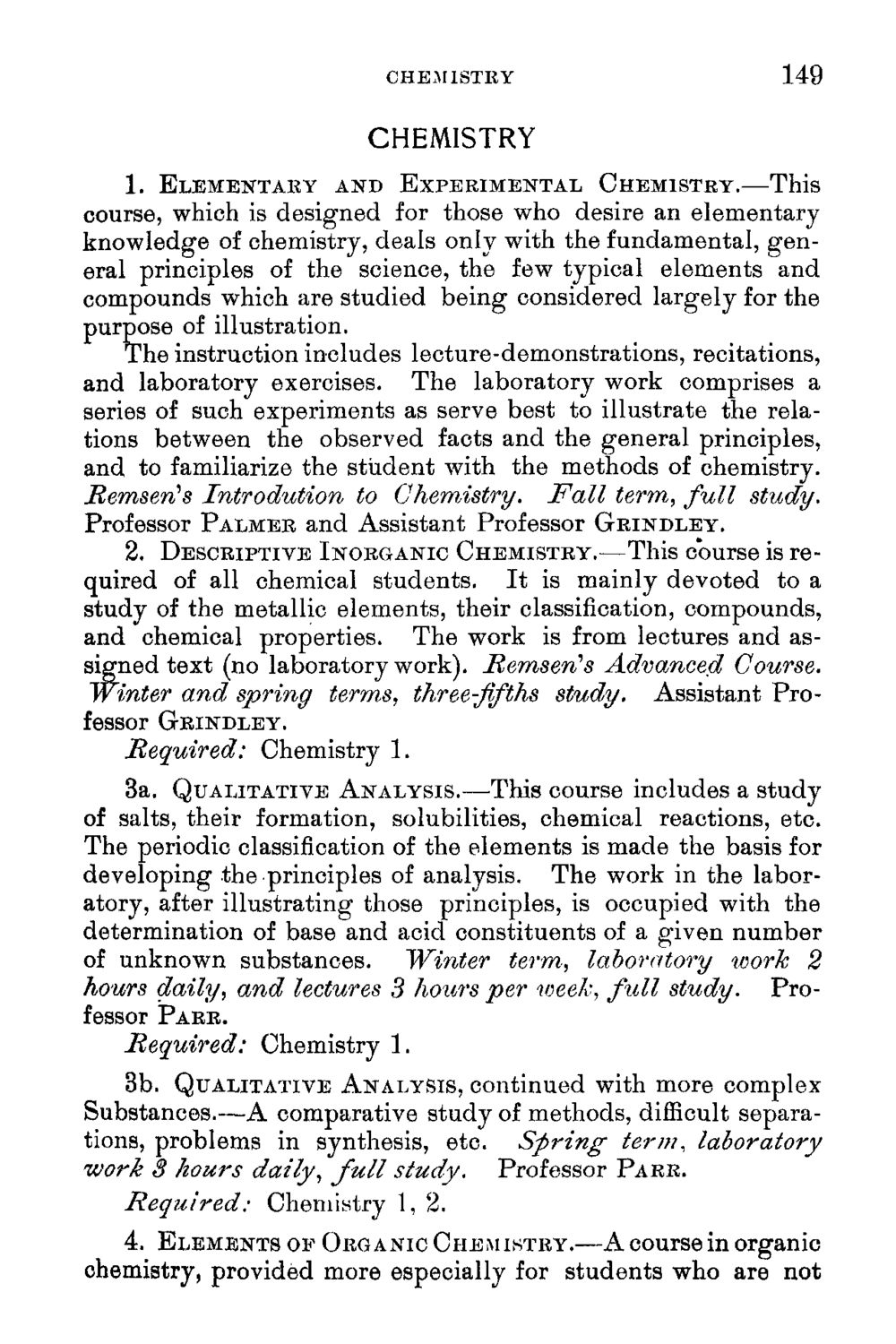| |
| |
Caption: Course Catalog - 1895-1896
This is a reduced-resolution page image for fast online browsing.

EXTRACTED TEXT FROM PAGE:
CHEMISTRY 149 CHEMISTRY 1. ELEMENTARY AND EXPERIMENTAL CHEMISTRY.—This course, which is designed for those who desire an elementary knowledge of chemistry, deals only with the fundamental, general principles of the science, the few typical elements and compounds which are studied being considered largely for the purpose of illustration. The instruction includes lecture-demonstrations, recitations, and laboratory exercises. The laboratory work comprises a series of such experiments as serve best to illustrate the relations between the observed facts and the general principles, and to familiarize the student with the methods of chemistry. Remsen's Introdution to Chemistry. Fall term, full study. Professor PALMEK and Assistant Professor GEINDLEY. 2. DESCRIPTIVE INORGANIC CHEMISTRY.—This course is re- quired of all chemical students. It is mainly devoted to a study of the metallic elements, their classification, compounds, and chemical properties. The work is from lectures and assigned text (no laboratory work). Remsen's Advanced Course. Winter and spring terms, three-fifths study. Assistant Professor GRINDLEY. Required: Chemistry 1. 3a. QUALITATIVE ANALYSIS.—This course includes a study of salts, their formation, solubilities, chemical reactions, etc. The periodic classification of the elements is made the basis for developing the principles of analysis. The work in the laboratory, after illustrating those principles, is occupied with the determination of base and acid constituents of a given number of unknown substances. Winter term, laboratory work 2 hours daily, and lectures 3 hours per week, full study. Professor PARE. Required: Chemistry 1. 3b. QUALITATIVE ANALYSIS, continued with more complex Substances.—A comparative study of methods, difficult separations, problems in synthesis, etc. Sfring term, laboratory work 8 hours daily, full study. Professor PARR. Req?-iired: Chemistry 1, 2. 4. ELEMENTS OF ORGANIC CHEMISTRY.—A course in organic chemistry, provided more especially for students who are not
| |